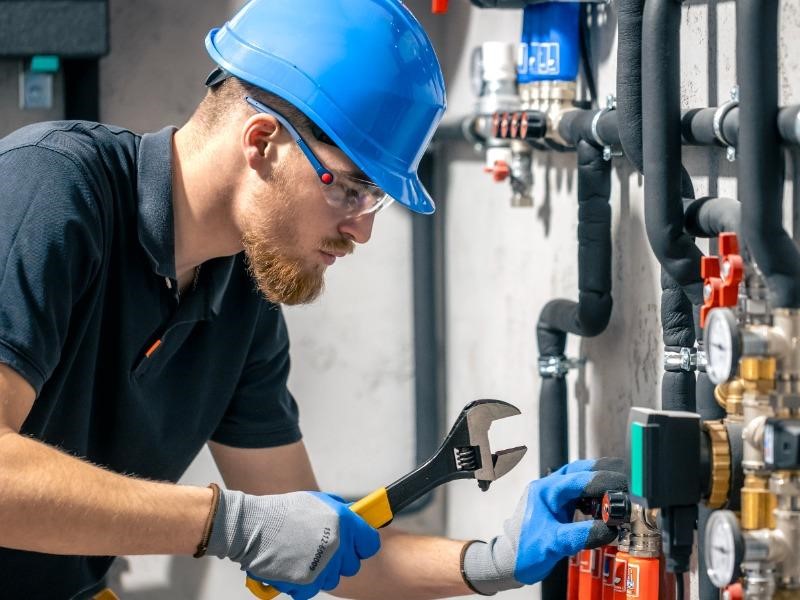Picture a burst pipe flooding your basement, and you can’t find a plumber who can come right away. You’re on the phone, waiting, and the water just keeps rising. This is one of the common problems in traditional plumbing regarding the inefficiencies and delays that cost people time, money, and patience. However, plumbing industries around the world are currently undergoing a transformation—one that will see their processes changed by the rapid spread of new technologies and the promise these technologies hold for improved service delivery while lowering costs. Technology, from smart systems to advanced diagnostics, lies at the core of remaking the plumbing industry into a leaner, more customer-friendly, and effective force.
Plumbing Technology’s Evolution
The history of plumbing dates back to ancient civilizations, where early systems for water supply and waste removal were developed. For centuries, plumbers relied on basic tools and labor-intensive methods. The introduction of materials such as copper and PVC pipes in the early 20th century, along with improved pipe-cutting gear and sealing materials, marked the beginning of technological advancements in plumbing. These innovations have significantly transformed the way modern plumbers approach pipe and fixture repair.
Current Technological Advancements
The plumbing sector is adopting both physical and digital technologies to improve service delivery and operational efficiencies. One notable innovation is smart plumbing technology, which involves using the Internet of Things (IoT) to monitor water usage, detect leaks, and remotely control water temperature. Homeowners receive alerts on their cellphones about potential issues before they occur. Another significant advancement is the use of sensors and artificial intelligence for leak detection. These systems can identify even the smallest leaks early, preventing costly water damage and conserving resources. Traditional leak detection methods were invasive and time-consuming, but modern technology provides a non-invasive and highly accurate alternative.
High-tech plumbing equipment has made routine tasks easier. For example, pipe inspection cameras allow plumbers to inspect pipes without digging, helping them locate damages and blockages with precision. Additionally, hydro-jetting machines, which use high-pressure water streams to remove clogs and clean pipes, are considered more effective and environmentally friendly than chemical cleaners.
Impact on Plumbing Businesses
The adoption of technological advancements has a profound impact on plumbing businesses. One of the most significant benefits is improved operational efficiency. Modern field service software for plumbing streamlines scheduling, dispatching, and invoicing, reducing administrative burdens and enhancing productivity. Plumbers can access job details and customer history in real time, ensuring they arrive prepared and equipped for the task.
Customer satisfaction has also seen a considerable boost. With advanced diagnostic tools and smart systems, plumbers can offer more reliable and faster services, addressing issues before they become major problems. This proactive approach builds trust and leads to better customer retention and referrals.
Cost savings are another major advantage. Technology reduces the need for extensive manual labor and minimizes errors, leading to significant financial savings. Automated systems ensure that resources are used efficiently, reducing waste and operational costs. For instance, plumbing business software helps manage inventory, track expenses, and optimize routes, further cutting down on unnecessary expenditures.
Plumbing Technology Trends in the Future
Plumbing technology is on the verge of some exciting developments. With the help of artificial intelligence and machine learning, predictive maintenance will revolutionize how plumbing systems are managed. These technologies can collect data from various sensors and use it to predict when a component is likely to fail, thereby reducing downtime. Another area of interest is sustainable plumbing solutions, including water-efficient fixtures, greywater recycling, and solar-powered water heaters, all of which reduce the environmental impact of plumbing systems while also saving resources. Additionally, there is a growing trend of smart home integration, where plumbing systems are becoming interconnected with other smart devices to provide complete control over the home environment. This integration is expected to enable advanced water management and enhance the overall smart home experience.
Conclusion
It’s evident that technologies like state-of-the-art plumbing business software have revolutionized the plumbing industry, bringing about increased efficiency, reliability, and customer satisfaction. The integration of technology, such as smarter plumbing and leak detection, high-tech equipment, and predictive maintenance, is addressing long-standing issues and creating new opportunities for growth in the sector. As this industry continues to evolve, businesses will be better positioned to compete by embracing these technologies. Now is the time to invest in the future and leverage technology to drive sustainable growth in the plumbing business. Embracing innovations enables the industry to stay abreast of technological advancements and establish new benchmarks for excellence and customer satisfaction.







